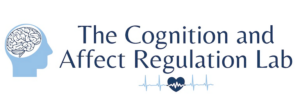Prospective Graduate Students
Dr. Stange will not be admitting a graduate student for the 2026-2027 academic year.
Prospective Undergraduate Research Assistants
We may have volunteer opportunities available for motivated undergraduate students who can commit to working at least 10 hours per week for a minimum of one year. Volunteers may be trained in recruitment procedures, data processing, and analysis procedures for psychophysiology and/or fMRI data. Please complete our interest form to be considered for future opportunities or contact CARlab@usc.edu for more information.
Specific Qualifications for Research Assistants
- Must be very detail-oriented, hard-working, professional, prompt, reliable and good with people. You will be helping make the lab run; therefore, your commitment and reliability are extremely important.
- Strong interpersonal skills and excellent communication, organization, presentation and computer skills.
- Ability to work effectively as part of a team (e.g., share duties with other research assistants when recruiting and running study participants; complete components of data analysis, slide presentations and manuscript preparations with the PI).
Desired Qualifications for Research Assistants
- Preference will be given to students who have an interest or experience working with psychophysiology, ambulatory assessment, and/or neuroimaging data and who can commit to the lab for 1 year or more.
- Programming experience is a plus, ideally in Python and/or Matlab, or if neither of those, ability to quickly learn these types of programming languages.
- Prefer sophomores or above, and those who have taken coursework in research methods.
- Minimum GPA of 3.3 (will consider exceptions with strong potential).
- BIPOC students are strongly encouraged to apply.
Seeley G. Mudd Building
3620 McClintock Ave
Los Angeles, CA 90089
